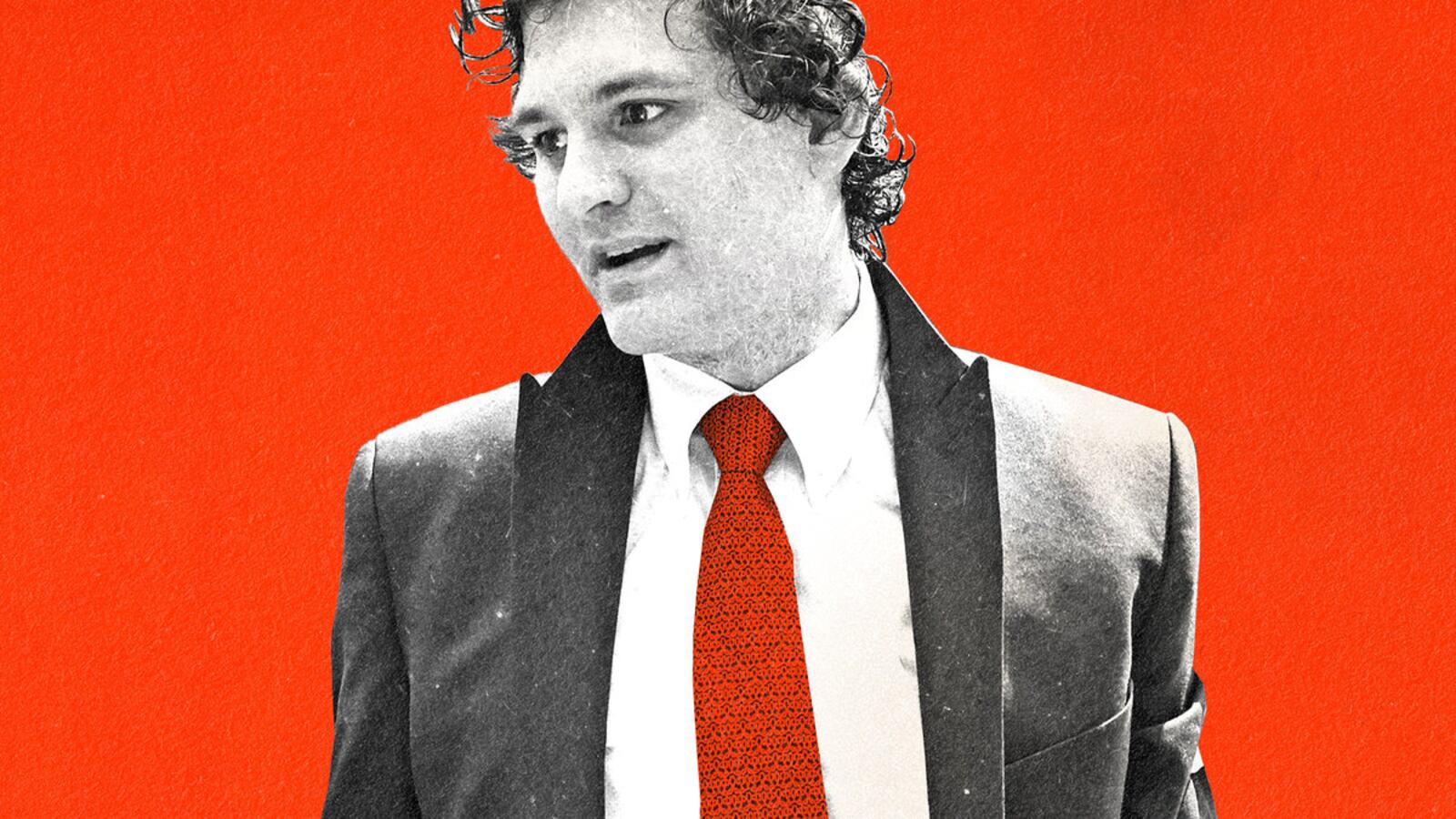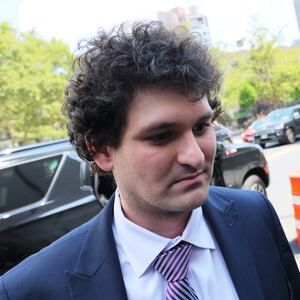U.S. District Judge Lewis Kaplan tore into FTX founder Sam Bankman-Fried during his sentencing hearing on Thursday, blasting the convicted fraudster as a remorseless, serial liar who had perjured himself on the stand and attempted to commit witness tampering. Kaplan then sentenced Bankman-Fried to 25 years in prison, capping a stunning downfall for the former public face of crypto.
Bankman-Fried, who was convicted on seven fraud and conspiracy counts in November, has been locked up since August, when Kaplan got fed up with his pretrial antics and remanded him into custody.
During Thursday’s hearing, Kaplan said that Bankman-Fried had delivered an unprecedentedly poor performance on the witness stand. “He knew [his conduct] was wrong. He knew it was criminal,” Kaplan added, according to Courthouse News. “He regrets that he made a very bad bet about the likelihood of being caught, but he’s never going to admit to doing a thing.”
Kaplan also rejected Bankman-Fried’s claim that he deserves a lighter sentence because many of his victims may be made whole on their lost investments. That may happen, the judge noted, but only because cryptocurrencies have skyrocketed in value. He offered an analogy to explain why Bankman-Fried is still blameworthy: If a thief steals money, takes it to Las Vegas, and earns a handsome profit by gambling, he is still a thief, even if the funds are repaid.
With palpable exasperation, Kaplan said that Bankman-Fried continued to offer a distorted version of reality in an effort to diminish his culpability. Bankman-Fried claimed he wanted to lawfully improve the world, while in private he made disparaging remarks about authorities, Kaplan emphasized. He pointed to an interview Bankman-Fried gave around the time of FTX’s collapse in which he said, “Fuck regulators.”
The judge derided the fraudster’s public persona as “an act” and said he deserved a long sentence in part because he is wired to take reckless gambles. “There is a risk that this man will be in a position to do something very bad in the future,” he said.

Sam Bankman-Fried’s parents, Barbara Fried and Allan Joseph Bankman, depart federal court after his sentencing.
David Dee Delgado/GettyIn a meandering speech on Thursday, Bankman-Friedman said he was sorry for the company’s demise and noted that, as chief executive, the blame ultimately rested on his shoulders. “A lot of people feel really let down, and they were very let down,” he said, adding that he was most remorseful that he helped destroy the work of his employees and co-executives: “I failed everyone I care about.”
Separately, he lamented, of his forthcoming time behind bars, “My useful life is probably over.”
His parents added in a statement: “We are heartbroken and will continue to fight for our son.” Bankman-Fried, who will also have to forfeit more than $11 billion, will likely be transferred from the Metropolitan Detention Center in New York City to a low or medium security facility closer to his parents in San Francisco.
Mr. Bankman-Fried, currently housed at the Metropolitan Detention Center in Brooklyn, will be sent to a low- or medium-security prison, the judge said, very likely near his parents’ home in the San Francisco Bay Area.
The son of two Stanford professors, Bankman-Fried, 32, was once worth more than $20 billion, thanks to his stakes in cryptocurrency platform FTX and an affiliated hedge fund called Alameda Research. He graced magazine covers, schmoozed with A-Listers like Tom Brady and Bill Clinton, lived with employees in a Bahamian penthouse, and showered politicians and sports teams with hundreds of millions of dollars in donations and sponsorship deals.
Then, in the fall of 2022, FTX abruptly collapsed, and Bankman-Fried was arrested that December. Prosecutors alleged that he had pilfered customer assets to prop up losses at Alameda and to fund venture capital investments in other companies.

Sam Bankman-Fried is walked in handcuffs to a plane during his extradition to the United States from the Bahamas in December 2022.
Royal Bahamas Police Force/Handout via REUTERS"Three of Bankman-Fried’s executives—Caroline Ellison, Nishad Singh, and Gary Wang—pleaded guilty to their role in the collapse and testified against their former boss at trial.
Ellison, who had an on-again, off-again relationship with Bankman-Fried, skewered him from the witness stand. After acknowledging her role in committing fraud and money laundering, among other charges, she declared that Bankman-Fried “directed me to commit these crimes.”
“The scale of wrongdoing was enormous,” Singh concurred during his testimony.
Bankman-Fried opted to take the stand in his defense. He appeared combative and denied knowledge about most of the company’s financial misconduct, though he admitted that “there were significant oversights.”
The jury evidently did not find him believable and convicted him on all seven counts in a matter of hours.
Following his conviction, prosecutors requested a sentence of 40 to 50 years in prison. Neama Rahmani, a former federal prosecutor and president of West Coast Trial Lawyers, told The Daily Beast he thought that proposed punishment seemed high. “People who commit murders sometimes get less than that,” he said. Still, he expected a substantial sentence given that Bankman-Fried had committed “one of the biggest and most brazen frauds in American history.”
Prosecutors echoed that point in pre-sentencing memos to the judge. “This need for deterrence is especially important in the area of cryptocurrency, where some individuals have operated under the misimpression that they are unregulated, not subject to criminal laws, or can avoid scrutiny or significant jail time,” they wrote.
They noted that Bankman-Fried’s companies were enormously lucrative and “could have been successful without fraud.” Nevertheless, they continued, he “chose to abandon honest work to pursue profit and influence through crime, and he used the proceeds of those crimes to enjoy his own lifestyle of affluence.”
Meanwhile, Bankman-Fried’s parents, former Stanford law professors Barbara Fried and Joseph Bankman, pleaded for leniency. (Neither parent has been charged with a crime, though both were involved in elements of Bankman-Fried’s operations. Bankman was included in group chats with FTX leaders as the company was imploding and they were trying to determine what to tell the public; Fried ran a political nonprofit that received funds from FTX. The couple also allegedly received millions of dollars in gifts.)
“It is easy to be cynical about others’ professed motives to do good in the world,” Fried wrote in a letter to Judge Kaplan. “It is even easier in Sam’s case, because the only thing the world knows about him is his connection to what has been described relentlessly in the media over the past year as ‘the fraud of the century,’ and his portrayal as a cartoonish villain driven by greed.”
She added that her son’s “moral character is demonstrated by his commitment to veganism even in custody,” despite the Metropolitan Detention Center’s alleged lack of nutritious vegan options. Fried claimed he lost 30 pounds during his first six months behind bars. (Bankman-Fried was originally confined to his parents’ home in California before the trial, until he was accused of trying to tamper with Ellison’s testimony by leaking private documents to The New York Times, among other infractions.)
In a separate letter, Bankman alluded to his son’s Autism Spectrum Disorder and claimed that a long sentence “would put Sam in an environment where his responses to social cues will sometimes be seen as odd, inappropriate and disrespectful,” which could place him in “significant physical danger.”
Bankman-Fried’s attorneys had requested a maximum sentence of 6.5 years, arguing that “Sam is not the ‘evil genius’ depicted in the media or the greedy villain described at trial.”
Clearly, Judge Kaplan did not agree.
Emily Shugerman contributed reporting.






